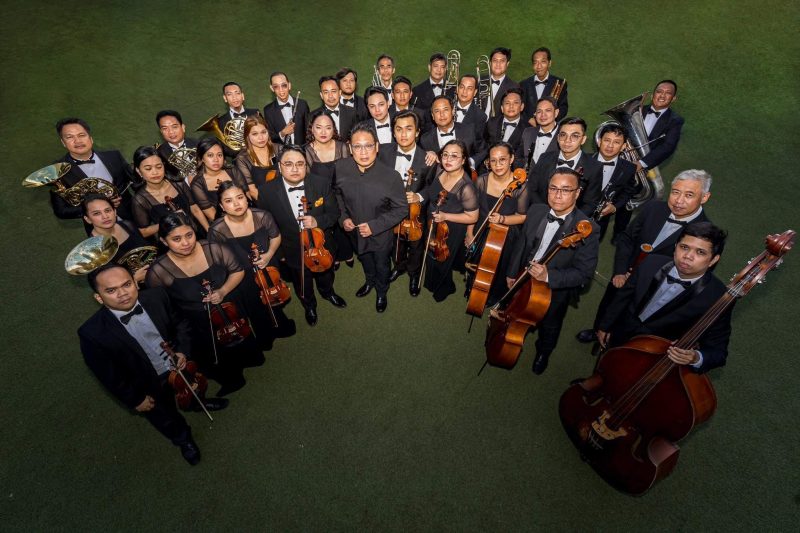Founded in 1926 by the Asociacion Musical de Filipinas with Alexander Lippay as its first conductor, the MSO has risen from its early challenges to become a symbol of resilience. Surviving the initial threats to its existence in the 1920s, the second world war in the 1940s, the political upheavals of the 1970s and 1980s, the closure of the Metropolitan Theater in the 1990s, and the global pandemic of the recent past, the MSO has not just endured but thrived. From showcasing resistance during World War II to hosting renowned artists and conductors, the MSO has woven itself into the very fiber of Filipino culture. Today, it stands as both Asia’s oldest orchestra and the Philippines’ longest-surviving artistic institution.

Now, the MSO embarks on its momentous “Road to 100,” a journey few institutions can claim. Its unwavering commitment to musical excellence and education shines through not just in initiatives like the Gala Concert Series, Rush Hour Concerts, and provincial tours, but also in the development of a new generation of Filipino talents by way of the MSO Foundation, the MSO Music Academy, and the Manila Symphony Junior Orchestra.
“We carry the torch with joy, pride, and dedication,” shares Maestro Marlon Chen, MSO’s musical director. “This isn’t just a celebration of longevity; it’s a commitment to a legacy that belongs to every Filipino—a Symphony for the People.”
The Road to 100 is more than a countdown; it’s a blueprint for the MSO’s future prosperity. Concerts leading up to the centennial aim to reflect its purpose—uniting people through music across time and generations.
In its inaugural year, 2024, the MSO commences the Road to 100 by paying homage to the timeless compositions of Giacomo Puccini in the first concert of the new season. Puccini, a composer whose works continue to stir emotions even a century after his death, becomes a testament that music is not just a bridge of time but also a unifying force across cultures.
As early as April this year, we will see the MSO embark on a nationwide tour, which will continue through 2025. From the hills of Batanes to the lush landscapes of Mindanao, the MSO’s mission is to breathe life into its thrust—a Symphony for the People. With patron cities like Cebu and Iloilo already on board, the MSO extends an invitation to more cities and provinces to join this historic musical journey.
The pinnacle arrives in 2026, the centennial year, filled with culminating concerts, projects, and the launch of the MSO’s commemorative book—a testament to its exceptional journey, having played with the world’s best and earning global recognition. From esteemed guest conductors to its own musicians performing in prestigious halls worldwide, the book documents the MSO’s remarkable history and impact.
Looking ahead, the MSO’s commitment to artistic excellence and community support remains steadfast. The MSO Foundation, which actively seeks backing for financial stability and a suitable venue for its diverse activities, the MSO Music Academy (currently serving over 300 students in three training centers), and the Manila Symphony Junior Orchestra all play vital roles in shaping the landscape of classical music in the Philippines. They champion young talent through programs like the Basilio Manalo College Scholarships and international music scholarships. Furthermore, they actively collaborate with local governments to establish orchestras in public schools, ensuring that the influence of classical music extends well beyond the confines of traditional concert halls.
What lies ahead for a centenarian? How can it grow concert audiences in an era where people live and think in the moment? Anticipating how the MSO will tackle these challenges is something to look forward to as it continues to produce world-class annual concert series involving top-tier soloists and guests conductors, and to promote Filipino music and compositions not just locally, but on the world stage, as well.
“The inherent power of orchestral music ensures its endurance and relevance as an art form. However, our aim is not merely to secure its survival but to foster an existence that thrives well into the future. Music’s enduring role as a cultural bridge transcends diverse backgrounds and geographic boundaries, offering a glimmer of hope even in the bleakest of time,” adds Marianne Hontiveros, president of MSO Foundation, Inc.
The Manila Symphony Orchestra’s Road to 100 is more than a journey through time; it’s a Symphony for the People—a celebration of music, culture, and the unrelenting spirit of the Filipino. This isn’t just the MSO’s legacy; it’s ours to share, nurture, and keep alive for generations to come. Join us on this historic adventure—become an advocate, spread the word, introduce young minds to the power of music, and support initiatives that ensure the MSO’s symphony resonates and prosper in the next 100 years.
Manila Symphony Orchestra and its Rich Heritage
The Manila Symphony Orchestra (MSO) is one of the oldest orchestras in Asia and the longest surviving artistic institution in the Philippines. Founded by Alexander Lippay in 1926, the orchestra played a major role in Philippine history, including acting as a symbol of resistance during the Second World War. Through the years, MSO has hosted artists such as Montserrat Caballé, Yehudi Menuhin, Igor Oistrakh, Eugene Istomin, Fou Ts’ong, Barry Tuckwell, Paul Badura-Skoda and Rony Rogoff, as well as conductors Andre Kostelanetz, Arthur Fiedler, Mendi Rodan, Robert Feist, Gareth Nair, Helen Quach, and Eduard Strauss II. Among those who have performed with the orchestra are several National Artists of the Philippines such Antonio Molina, Antonino Buenaventura, Lucio San Pedro, Ernani Cuenco Levi Celerio, and Ryan Cayabyab.
Today, the Manila Symphony Orchestra is one of the country’s most active artistic institution, providing a variety of high-quality performances and actively supporting the development of young Filipino talents. Currently, the MSO’s artistic team is led by Marlon Chen as Music Director, Jeffrey Solares as Associate Conductor, and Diomedes Saraza Jr. as Concertmaster.
With a pocketful of glitter,


